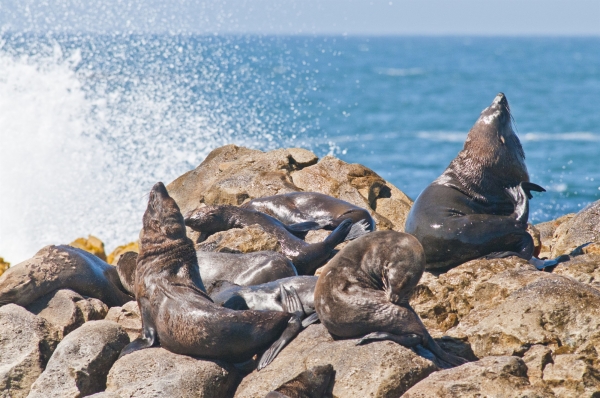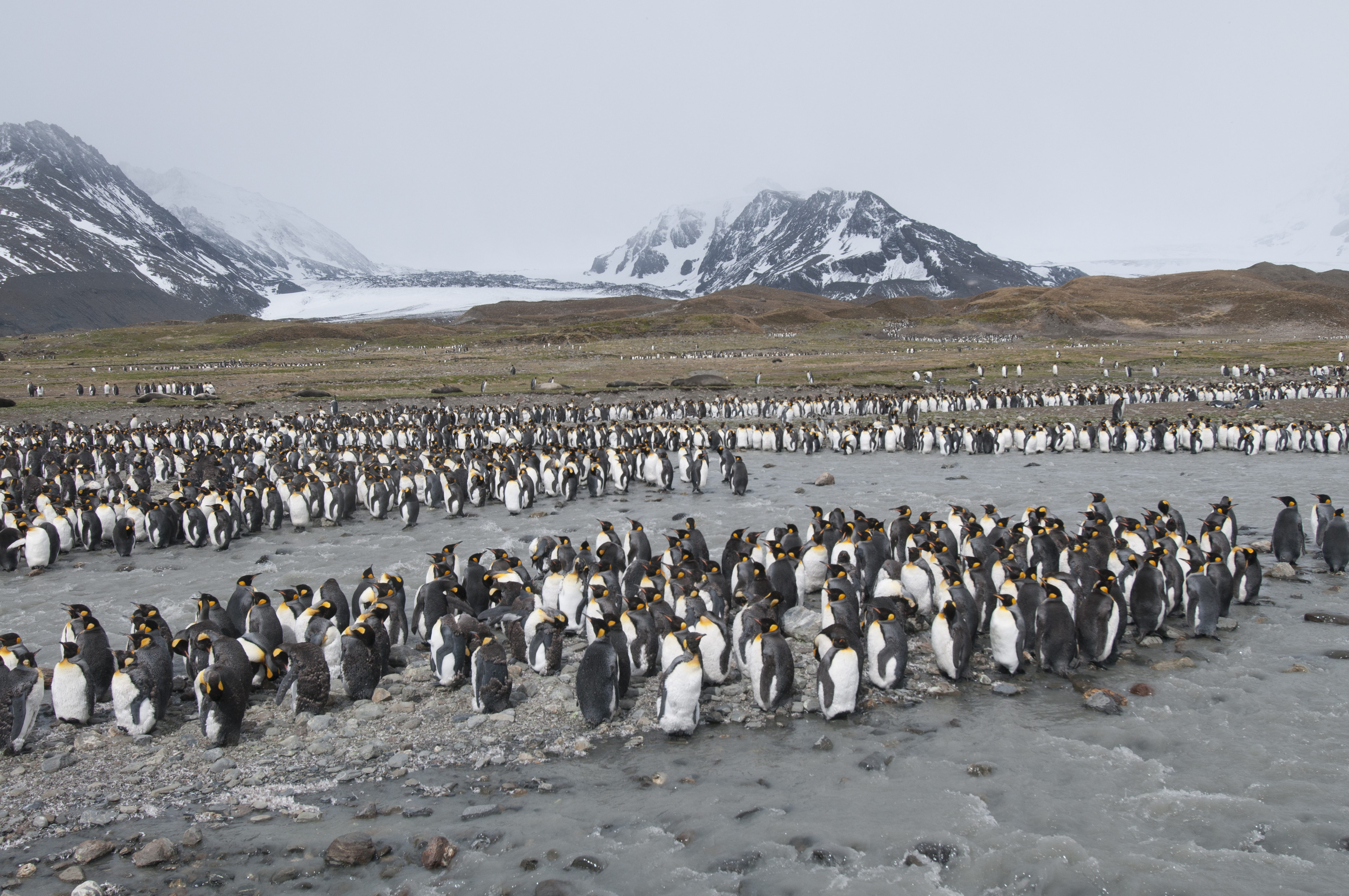

For the last two centuries seabird colonies on the Sub-Antarctic islands of South Georgia were nearly decimated by non-native rats and mice. Whalers and Sealers beginning in the late 1700’s carried rodents on their ships which inadvertently colonized the island and had feasted on seabird eggs and chicks. The Islands of the South Atlantic are key breeding grounds for the whole South Atlantic bird populations.
In the absence of sufficient government funding to tackle the environmental challenge, the South Georgia Heritage Trust (SGHT.org, a UK charity) and the Friends of South Georgia Island (FOSGI.org, a US non-profit) jointly worked with expedition cruise vessel operators to educate and enlist the support of the 6000-9,000 visitors they bring to South Georgia each year to eradicate the rodents. As of 2018, South Georgia was declared rat free. Success!
We are also thrilled to be part of the Wild Waters Whales Research program, studying the return of the large whale populations also nearly exterminated by showing remarkable recovery. Both FOSGI and SGHT have coordinated and participated in numerous projects since 2005 to promote the conservation of natural and cultural history of South Georgia. We are currently working on a Whaling Station initiative and waste clean-up. We also sponsored an Invasive Species Workshop representing +350 projects and are currently supporting the South Atlantic Gough Island and Marion Island Rodent Eradications by sharing best practices.
Imagine visiting remote beaches colonized by +400,000 penguins, thousands of Petrels and Prions flying around the Island and islets or seeing Wandering Albatross with 12 foot/4-meter wing span flying alongside the ship on the journey to both Antarctica and South Georgia and knowing we have re-created the chance to breed. South Georgia is a magnificent small island which is in the process of a remarkable recovery due to the collective responsibly that both visitors, expedition tour companies, charities, the public at large and government have taken on the responsibility for protecting and conserving. We are thrilled to be an active participant in this unique partnership.
Visitors to South Georgia fall in love with the island and want to help protect it and its wildlife. The Government of South Georgia has insufficient funding to tackle the big conservation challenges that the island faces, which is why the South Georgia Heritage Trust (SGHT) and the Friends of South Georgia Island (FOSGI) organisations were established.
Tourists welcome the opportunity to financially support environmental initiatives and the charities provide a mechanism for them to do so. Visitors are told about the conservation work when the team employed by the SGHT to run the Grytviken Museum (the island’s only tourist facility) comes on board their cruise ship, and when they visit the museum itself. The South Georgia Government also provides an educational briefing video to the cruise ships which every passenger must watch, and which explains the importance of biosecurity measures for visitors. Over the last few tourist seasons, the fundraising efforts in South Georgia have generated £200K / USD 320K per Antarctic season. This funding is vital to the continuation of the Habitat Restoration project.
SGHT and FOSGI are forging ever closer links with the vessel operators as the project progresses, providing them with tools such as DVD footage of the conservation work that will entertain as well as inform visitors. The next step in the relationship is likely to combine tourism and fundraising even more closely by organising a cruise for potential and existing major donors to visit the island and be inspired first-hand by the wildlife.
Charities should be encouraged to work with tourism companies to engage their clients. Tourists actually want to make a positive impact on the places that they visit, so tourism professionals generally welcome initiatives to educate and enlighten their customers about the places they visit. It enhances their experience and gives them a sense of ownership and investment in the place visited, which translates into happy customers, and more often than not, return visits.
© Linking Tourism & Conservation (LT&C) 2019
We are grateful that you support the work and mission of LT&C! We accept donations through Credit Card, PayPal or international bank transfer:

Donate through Credit Card
Please click the Donate button and then choose your PayPal account
Bank details:
Cultura Sparebank
Pb. 6800, St. Olavs plass
N-0130 Oslo
Name: Linking Tourism & Conservation,
Account no.: 1254 05 95168
IBAN: NO8712540595168
BIC/SWIFT: CULTNOK1
Routing BIC: DNBANOKK
Please mark payments with your name and/or email address
Sign up for an LT&C membership by filling in the details below.
Would you like your LT&C-Example/Initiative to be listed on our website? Please fill in the form below.